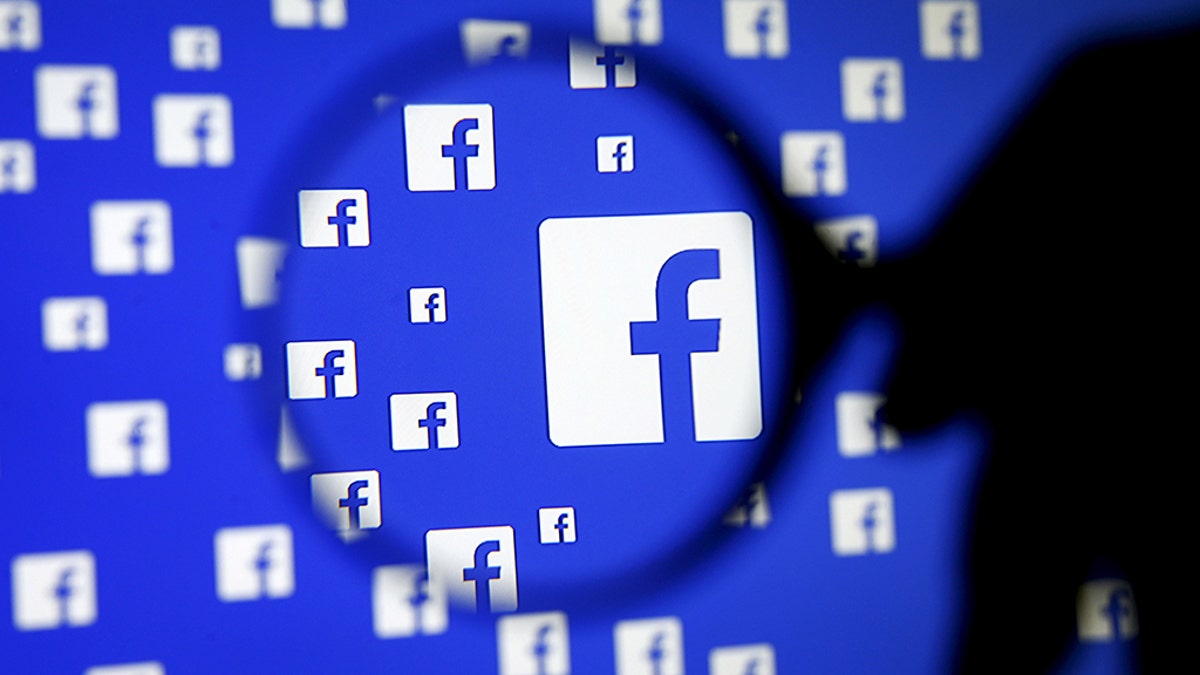
File photo: A man poses with a magnifier in front of a Facebook logo on display in this illustration taken in Sarajevo, Bosnia and Herzegovina, December 16, 2015. REUTERS/Dado Ruvic/Illustration
A federal judge in California ruled this month that the government cannot force Facebook to wiretap voice calls over its popular Messenger app by holding the company in contempt, according to Reuters.
The sealed decision was a major blow to the Department of Justice, which tried to have Facebook comply with a wiretapping request for an investigation into the notoriously violent MS-13 gang.
“Warrant-proof encryption is a serious problem,” Deputy Attorney General Rod J. Rosenstein said in a speech in last October. “Technology companies almost certainly will not develop responsible encryption if left to their own devices,” he said. “They are in the business of selling products and making money. . . . We are in the business of preventing crime and saving lives.”
It is a positive development, however, for tech firms that are trying to ward off pressure from the government to provide surveillance as they build enhanced encryption programs to protect customer privacy.
Federal law currently requires telecommunications providers to give police access to calls, but Facebook contends Messenger does not fall into this category. The company built the app to have “end-to-end” encryption, meaning Facebook is unable to decode voice signals encrypted in transit between phones.
Facebook argued that giving law enforcement access to Messenger voice calls would create a costly, undue burden that would violate the Wiretap Act “technical assistance” provision. The judge who presided over the case in a U.S. District Court in Fresno agreed, denying a joint federal and state task force from carrying out the wiretap order.
“The question in these cases often is, ‘What’s the minimum of interference?’” Jennifer Granick, surveillance and cybersecurity counsel at the American Civil Liberties Union, told The Washington Post.
The Fresno case is a stark contrast to the face-off between Apple and the Justice Department, where the government successfully accessed data stored on the iPhone that belonged to the San Bernardino gunman without Apple's assistance.
Though similar to Apple’s stance, Facebook said it cannot be expected to alter its software to help with the FBI’s investigation. Apple made the same claim when it decided to not break into a terrorist’s iPhone in 2016.
At the time, the case prompted a policy discussion over how to protect the public while also maintaining user privacy. The Obama administration decided not to pursue legislation that would force companies to build surveillance capabilities into their services.
BROWSE PRIVATELY, MASTER WINDOWS AND MORE: TECH Q&A
Under President Trump, the Justice Department is taking a more aggressive stance. This particular case is especially relevant to the current administration since it deals with MS-13, a group Trump has called “animals” and used as an example of why the U.S. needs more stringent immigration laws.
The government’s private filings with Facebook could provide insight as to why officials decided to target Messenger’s voice calls. This additional information about the government’s case against Facebook may be brought forward by lawyers for the 16 suspected gang members.
Mark Broughton, an attorney for one of the defendants, Denis Barrera-Palma, said he would ask for the prosecutors’ application to wiretap Facebook Messenger voice calls.
“I would be interested in seeing, or trying to get an order unsealing that information to properly represent my client,” Broughton told Reuters.
His client, Barrera-Palma, faces California charges of murder conspiracy and federal counts of assault with a deadly weapon and drug conspiracy. Barrera-Palma has pleaded not guilty to the federal counts.








































